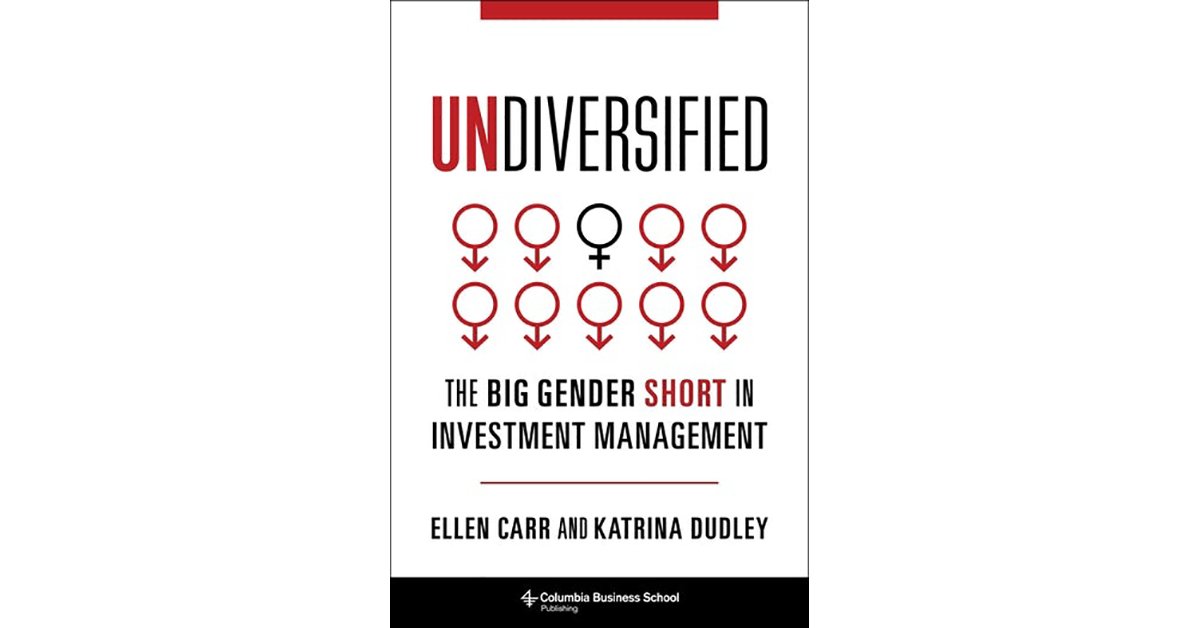Undiversified: The Big Gender Short in Investment Management. 2021. Ellen Carr and Katrina Dudley, CFA. Columbia University Press. Columbia Business School Publishing.
Key Points:
- Undiversified: The Big Gender Short in Investment Management is a timely study that addresses the underrepresentation of women in the investment management industry.
- Only 10% of portfolio managers are women, and investment management firms majority-owned by women manage less than 1% of global investable assets.
- The lack of gender diversity in the industry can be detrimental to investment management firms’ ability to respond to passive investment management and technological innovation.
- Undiversified proposes solutions to mitigate the gender imbalance in investment management, starting with increasing visibility to women of investment management careers and addressing image problems.
The authors of “Undiversified: The Big Gender Short in Investment Management,” Ellen Carr and Katrina Dudley, CFA, provide a comprehensive review of the underrepresentation of women in the investment management industry. They highlight the need for gender diversity not only from a fairness standpoint but also from a business perspective. The book offers solutions to address the gender imbalance and improve investment results.
Carr and Dudley start by revealing a staggering statistic: only 10% of portfolio managers are women. They also point out that investment management firms majority-owned by women manage less than 1% of global investable assets. This lack of gender diversity can hinder investment management firms’ ability to adapt to changes in the industry, such as the rise of passive investment management and technological innovation.
The book delves into the reasons behind this gender imbalance and dispels common myths that discourage women from pursuing careers in investment management. The authors conducted over 100 interviews with students and industry practitioners and found that many women view investment management as a male-dominated profession. They are also less knowledgeable about the industry and have lower confidence in their ability to land a job in this field.
To address these issues, Carr and Dudley propose a multi-faceted approach. They advocate for increasing the visibility of investment management careers to women and addressing existing image problems. They also emphasize the importance of improving women’s investment literacy and changing recruiting criteria to attract more female candidates. Additionally, they highlight the need for ongoing support and opportunities for women in the industry, including promoting equal pay, culture, and boardroom representation.
“Undiversified: The Big Gender Short in Investment Management” is a valuable resource for anyone interested in promoting gender diversity and improving investment management industry outcomes. It provides actionable insights and a roadmap for creating a more inclusive and successful industry.







